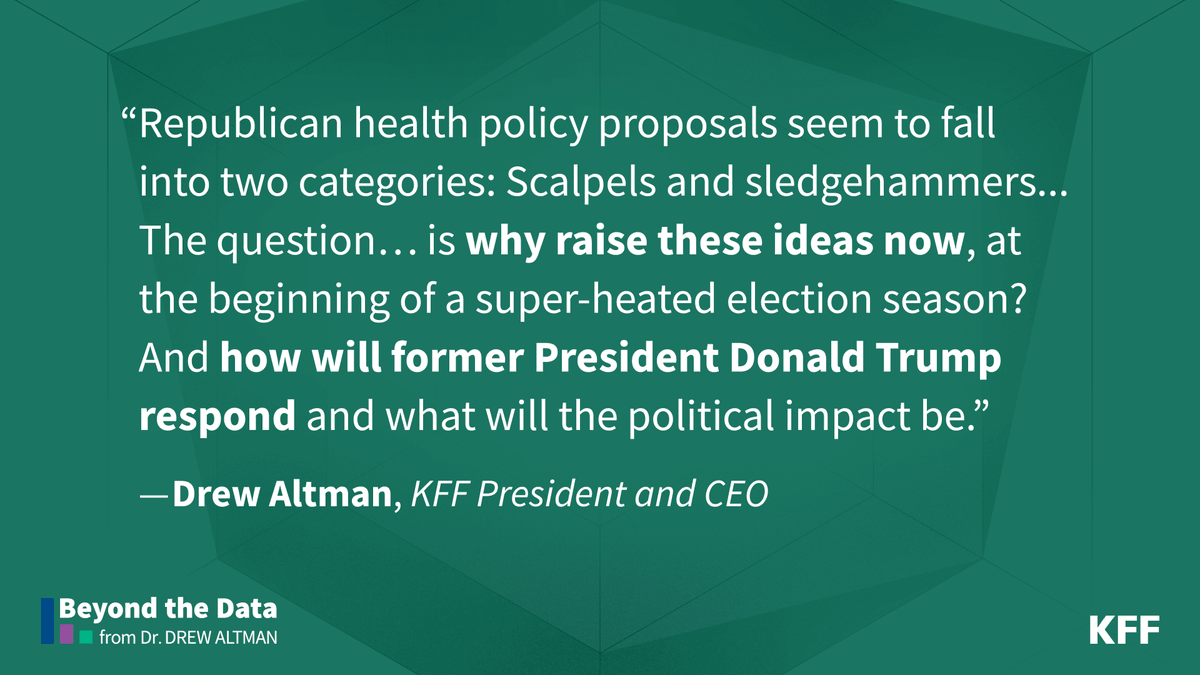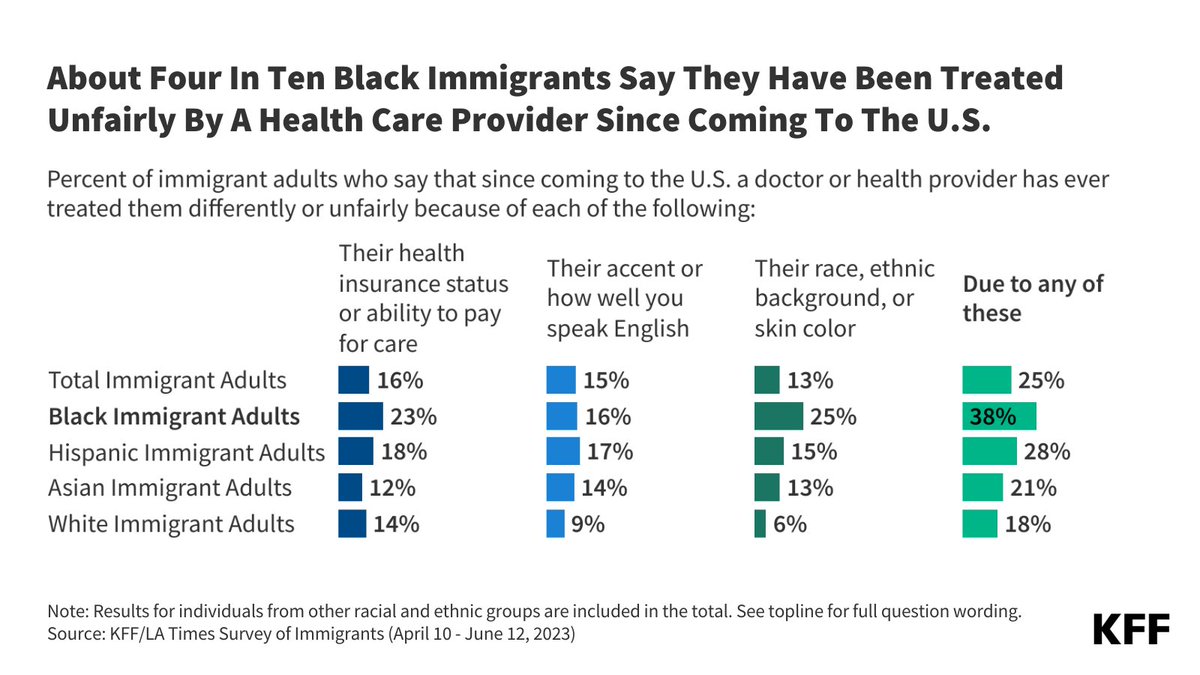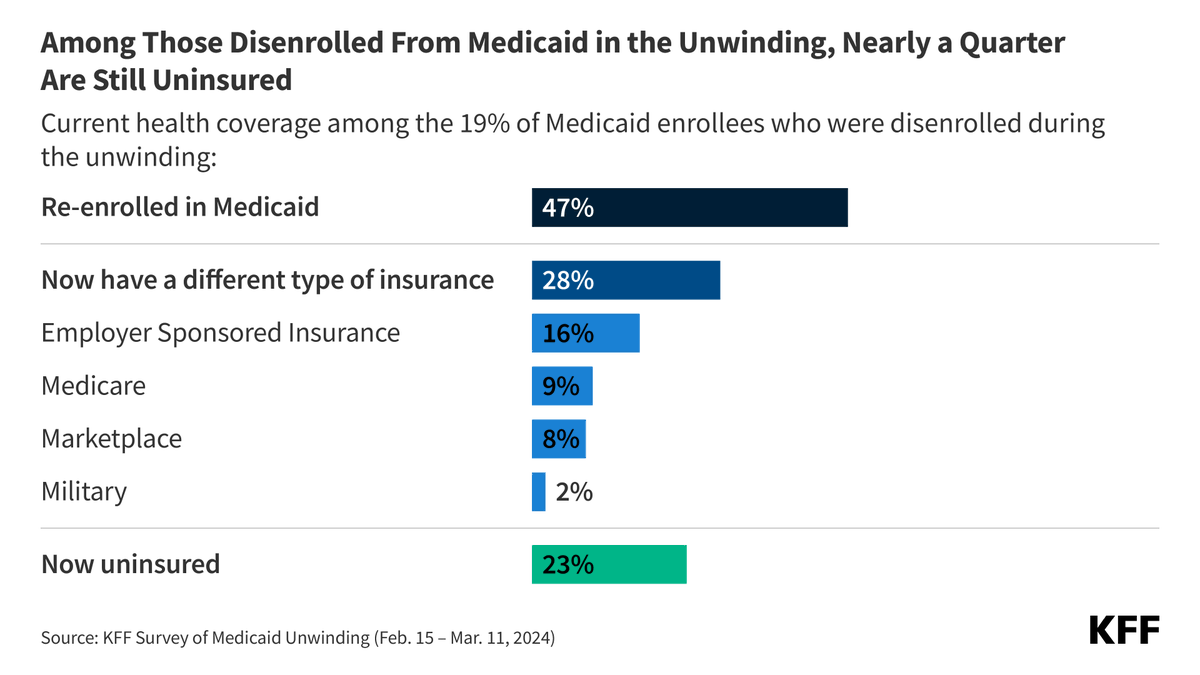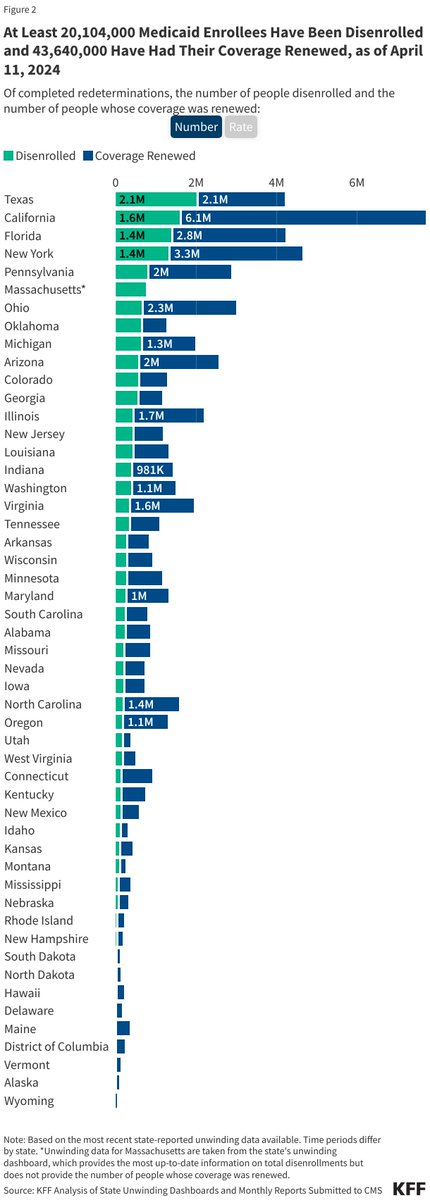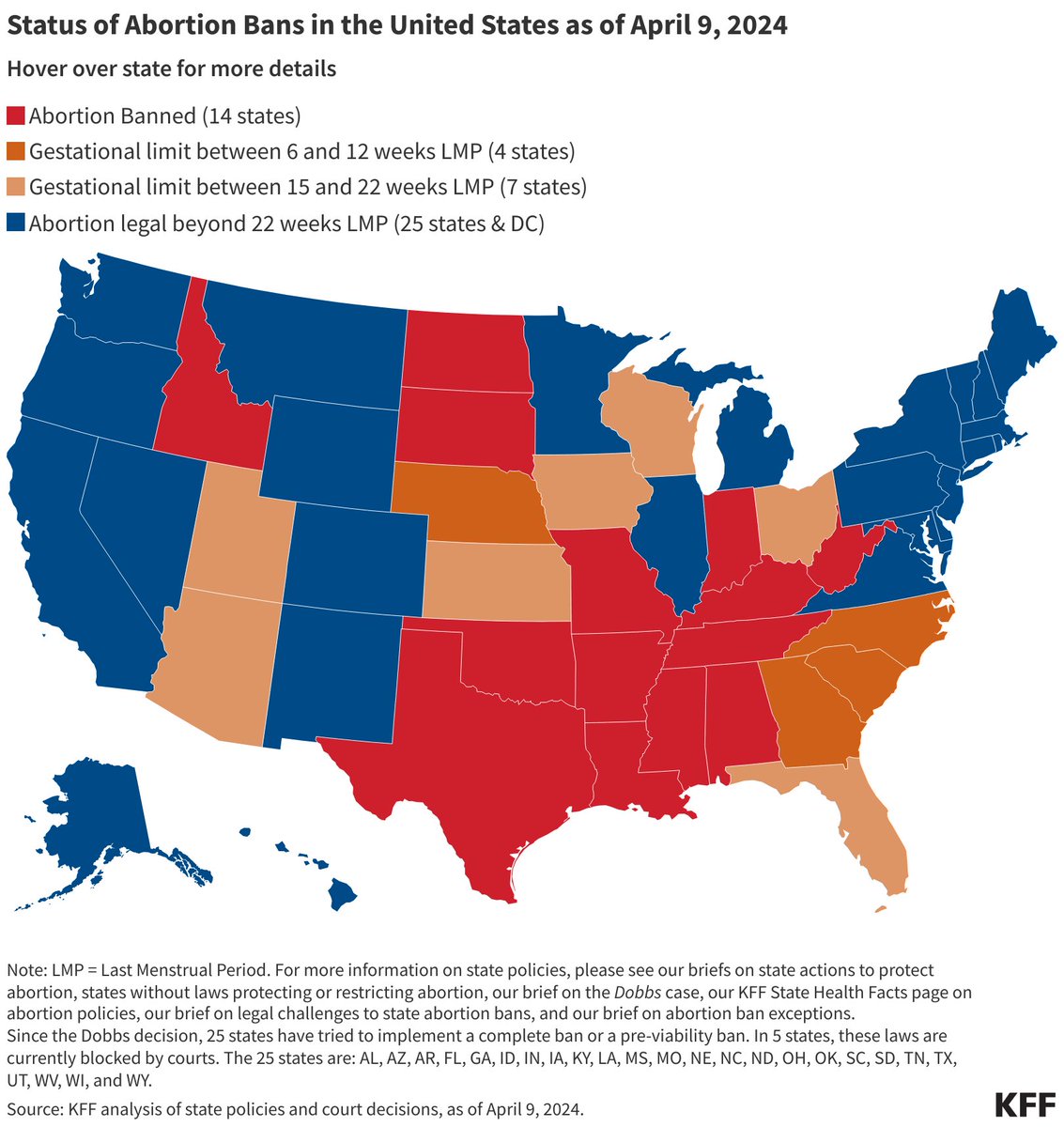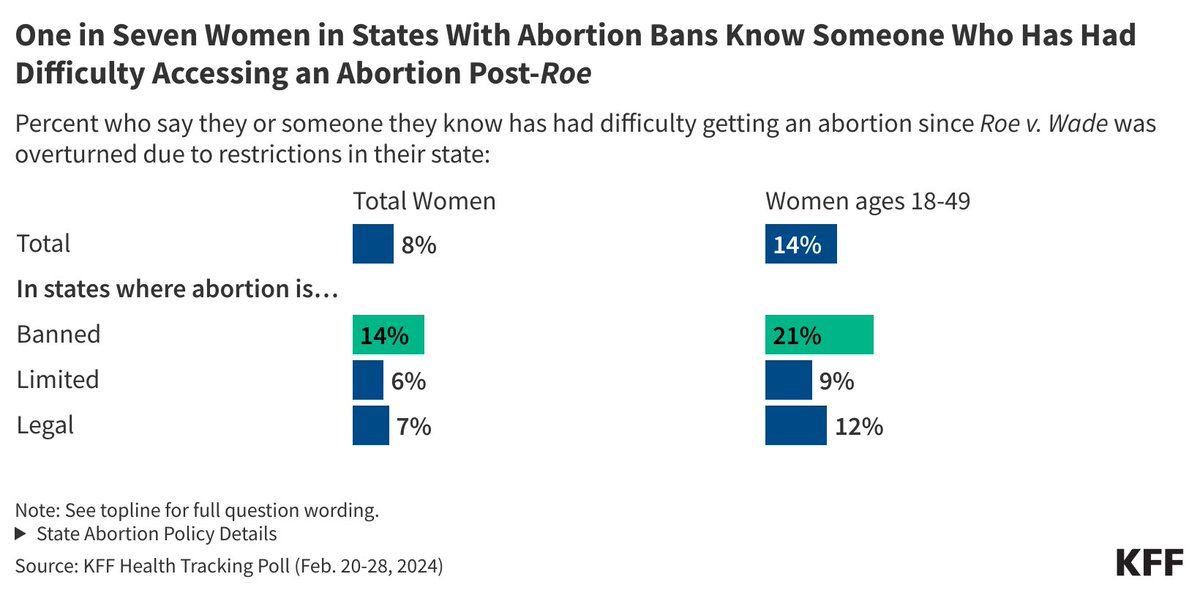
KFF
@KFF
The independent source for health policy research, polling, and news.
ID:84614572
http://www.kff.org 23-10-2009 15:17:51
45,2K Tweets
114,4K Followers
18 Following







How will former President Trump respond to some new Republican health policy proposals?
In his new column, KFF’s Drew Altman examines the political impact of these health policy ideas and their potential to make waves in this year’s elections. bit.ly/3UbmEb9


“Republican health policy proposals seem to fall into two categories: Scalpels and sledgehammers. The question… is why raise these ideas now, at the beginning of a super-heated election season?”
Read more from KFF’s Drew Altman in his latest column: bit.ly/3UbmEb9
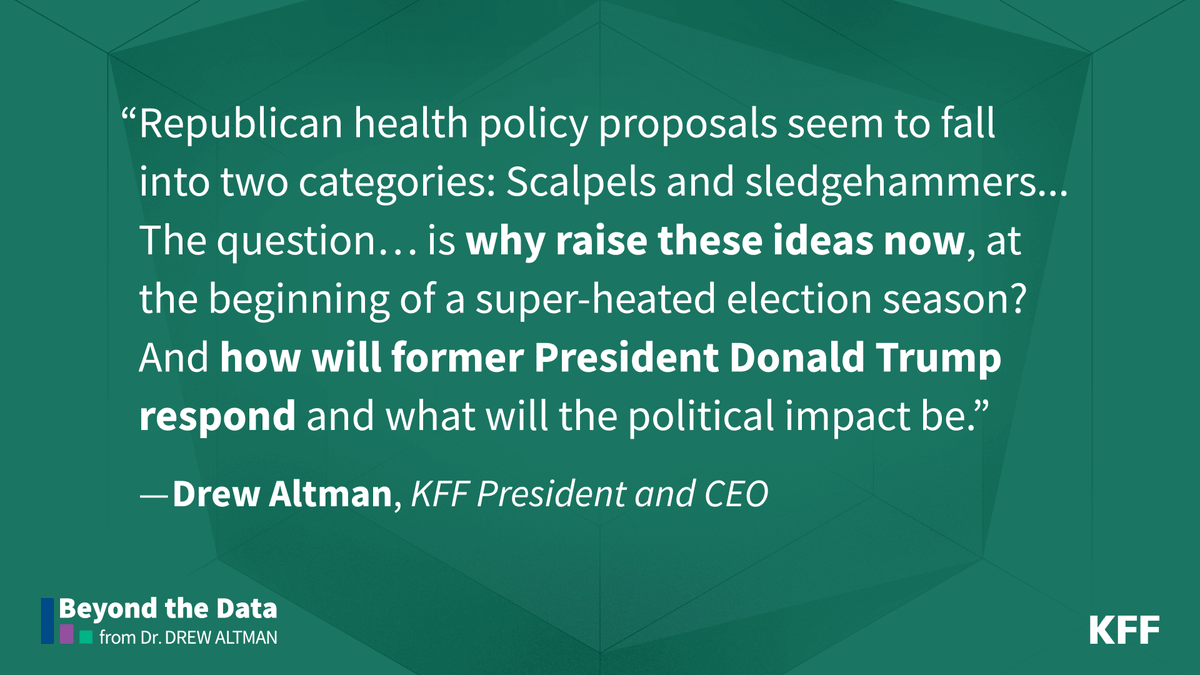


During last week’s #HealthWonkShop , KFF's Larry Levitt moderated a discussion on the current state of primary care.
“Almost every healthcare issue I’ve worked on starts and ends with payment,” he said.
🎧 Watch the recap or listen to it as a podcast: bit.ly/3vHqmQg


KFF’s Drew Altman examines the conservative Republican Study Committee’s sweeping proposals to remake Medicare, Medicaid and the Affordable Care Act and their potential to make waves in this year’s elections in his latest column.
Read more: bit.ly/3UbmEb9
